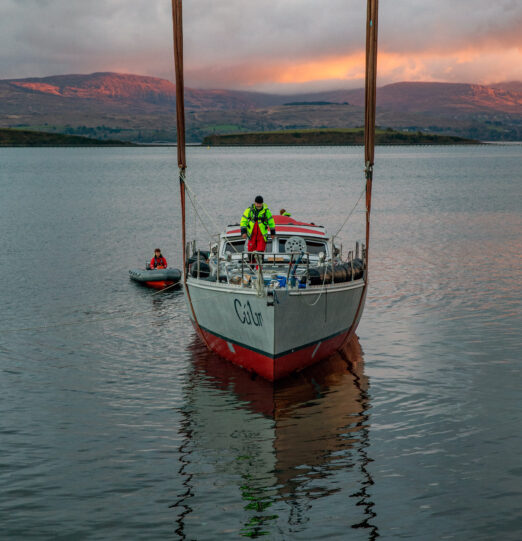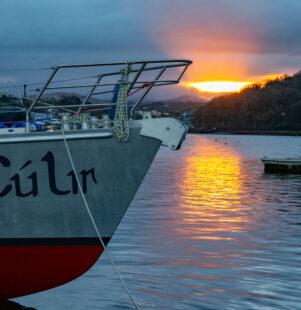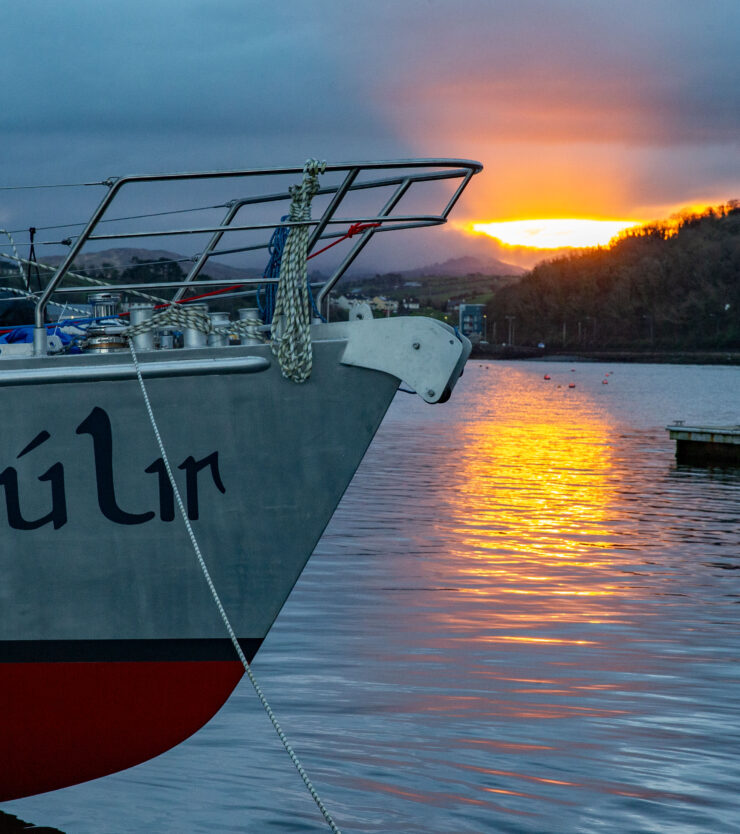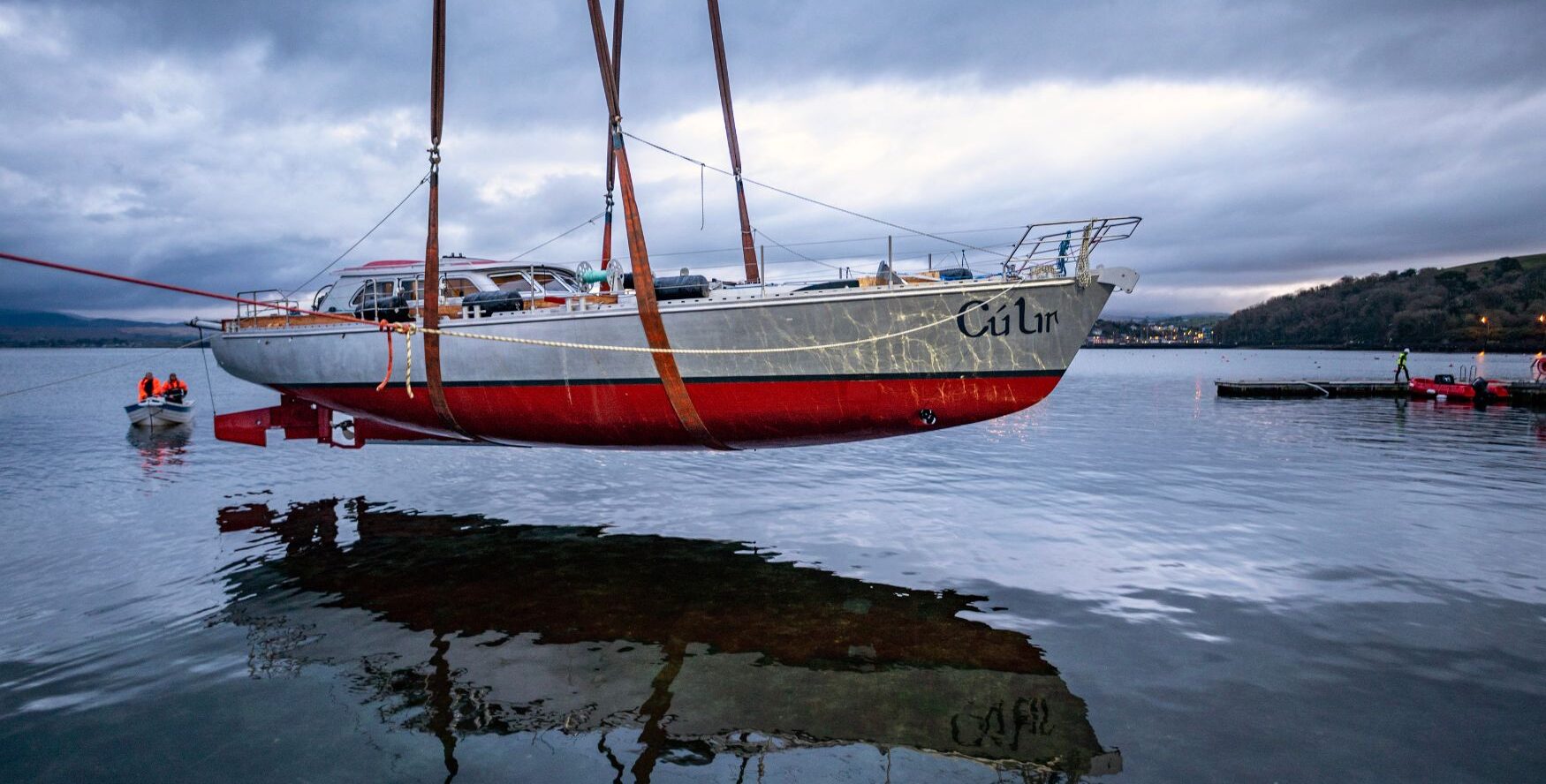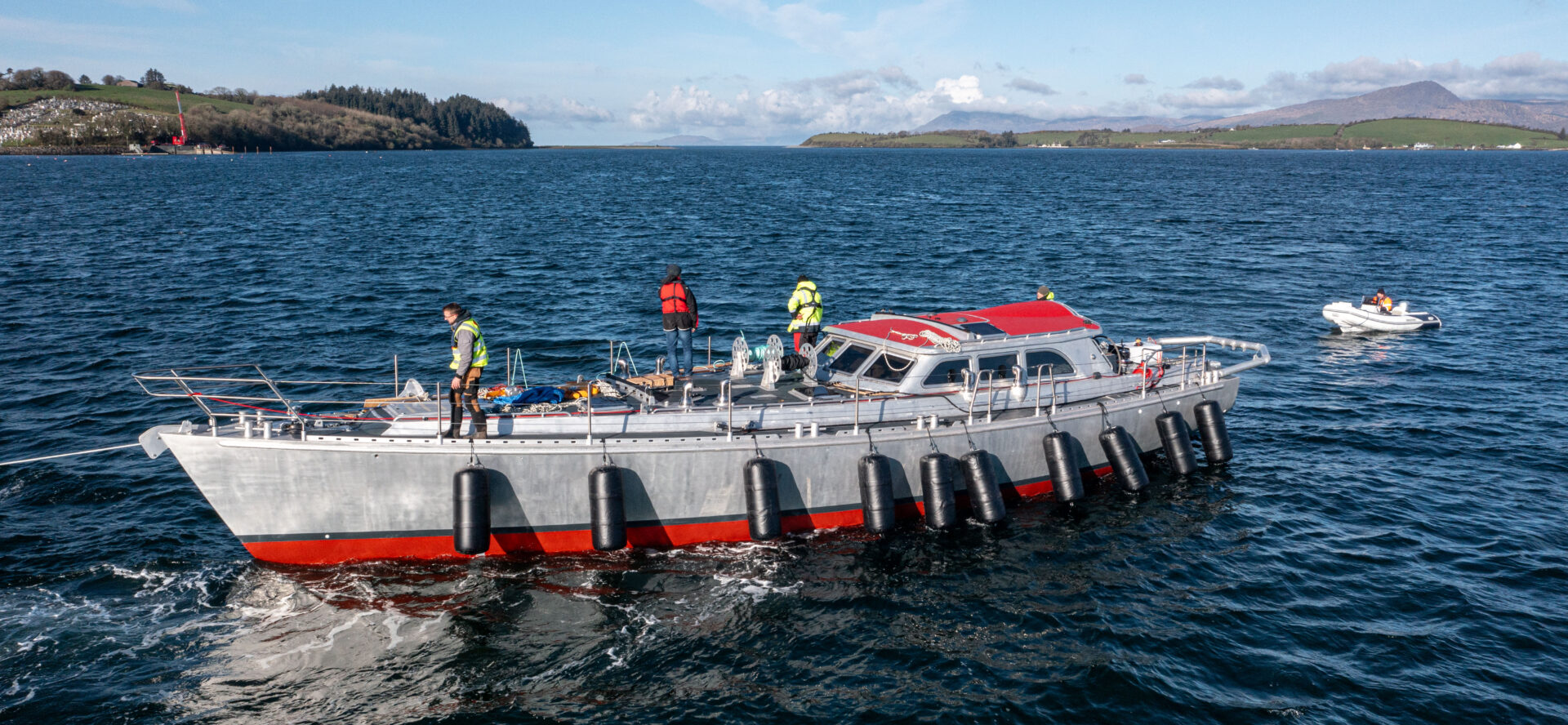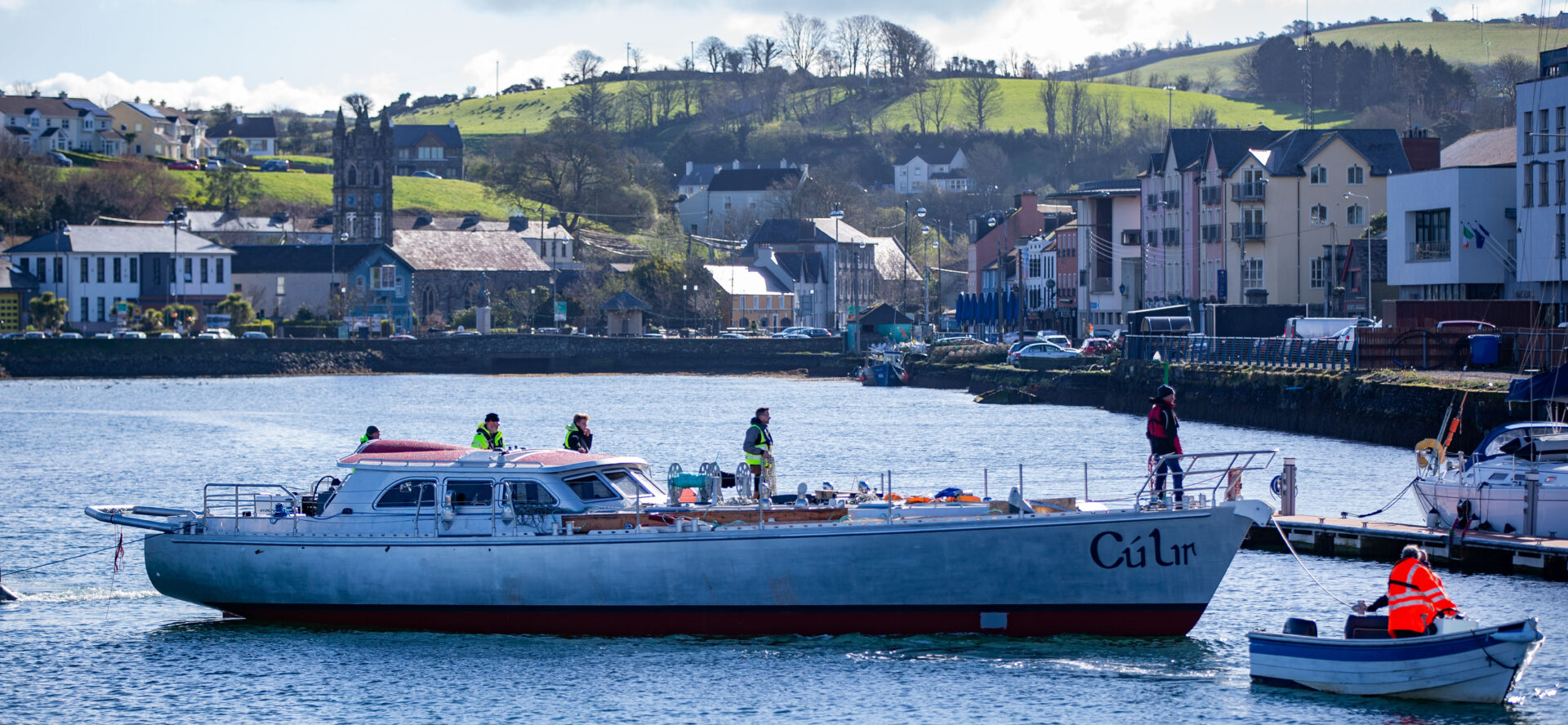
About

Cú Lir provides a stable and safe platform for conducting coastal scientific research in some of the planet’s most difficult to reach places.Its 17-metre aluminium hull is reinforced for ice navigation and built to navigate through less than 1 meter of shallow water making it exceptionally versatile.
Cú Lir is equipped to enable researchers to conduct a wide range of expeditions, from oceanography and marine biology to climate change impacts and conservation efforts. Its ultra high-speed data processing and transmission will facilitate real-time collection and analysis of large datasets in remote locations.
Its hybrid propulsion system combines traditional sailing with modern motor technology, minimizing its environmental footprint, while ensuring reliability in demanding conditions. Cú Lir, which is available for charter, will carry a highly qualified crew of three and will accommodate a scientific team of up to seven members.
